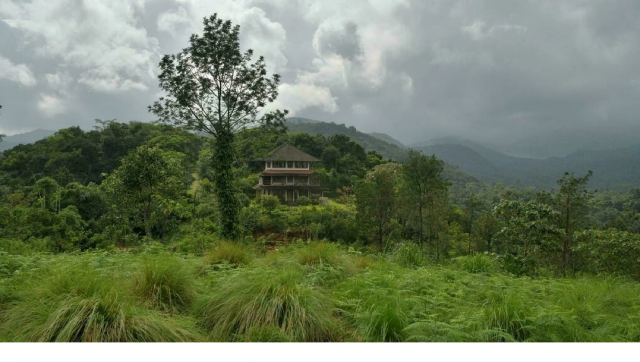Fighting Climate Change
Pakistan has experienced more than 152 extreme weather events since 1999

Our planet is facing numerous challenges at the moment, ranging from geopolitical unrest to global poverty. The effects of climate change often take a backseat but this problem is as serious of a threat as any other. The anthropomorphic activities, since the mid-20th century, have disrupted the natural order of our planet which has resulted in increase in sea levels, surge in pollution and warming of temperatures. The weather patterns have become unpredictable and erratic. We are now experiencing severe weather conditions, such as heat waves and floods, more frequently than ever before.
Since the end of the 19th century, the world’s surface temperature has risen by an average of one degree Celsius, mainly due to the increase in carbon dioxide emissions. A major chunk of this warming occurred in the past four decades. The oceans have absorbed a significant portion of this increase, which has pushed their temperatures higher by 0.33 degrees Celsius. Ice sheets in Antarctica and Greenland have been shrinking while glaciers all over the world, including the Himalayas, are melting. Plants, vegetation, agriculture, marine life, land animals, human beings and virtually everyone is now feeling the heat of climate change.
The impact of climate change has become apparent in Pakistan and it can be observed easily by everyone. Some Pakistani cities, including the key urban centres of Karachi and Lahore, have become some of the most polluted places in the world, as measured by the Air Quality Index. Meanwhile, the recurring heatwaves, flash floods and landslides have made things difficult for the people. According to the data compiled by the environmental think tank Germanwatch, Pakistan has experienced more than 152 extreme weather events since 1999 in which nearly 10,000 precious lives have been lost. The country is often ranked among most susceptible ones to the adverse effects of climate change.
Climate change is certainly a serious issue that needs to be tackled at the state level. Credit must be given to the Pakistan Tehreek-e-Insaf (PTI)-led government that has recognised the importance of this problem and has taken tangible steps to mitigate the impact of climate change. In 2014, when PTI was running the provincial government in Khyber-Pakhtunkhwa, it launched the Billion Tree Tsunami project. Five years later, when Imran Khan became the Prime Minister, the government launched an even more ambitious 10 Billion Tree Tsunami programme. Planting trees is one of the most effective ways to deal with carbon dioxide and replace it with oxygen in the atmosphere.
The current government has also been enacting environmentally friendly policies that signal its intent to substantially cut down greenhouse gas emissions in the long term. By updating the country’s climate action plan, called the Nationally Determined Contribution (NDC), the government aims to bring emissions down by as much as 50% by 2030.
However, when it comes to tackling climate change, there is always room for improvement. In order to quickly and effectively reduce greenhouse gas emissions, make the environment greener and healthier, and achieve other environmentally friendly objectives laid down under the national policy, the government must also engage the private sector.
Some of Pakistan’s largest corporations, such as Cnergyico Pk Limited (formerly Byco Petroleum), have already taken numerous measures to cut down greenhouse gas emissions. Cnergyico Vice President of Information Azfar Saeed Baig believes that climate change is one of the toughest challenges of our times and everyone, including the large corporations, need to play their role to fight against the devastating impact of climate change.
Cnergyico, which is Pakistan’s biggest oil refiner in terms of installed capacity and also runs a nationwide network of hundreds of petrol pumps, conducts one of Pakistan’s largest and most diverse corporate social responsibility programs, especially around its oil refining complex in Hub, Balochistan. The company provides clean drinking water to local communities, supports women empowerment initiatives, and conducts various other social activities. However, “fighting climate change by planting trees has been one area where we have been actively participating since the past few years,” Azfar Saeed Baig explained.
Cnergyico has taken a keen interest in afforestation activities. The company has planted thousands of trees near its oil refining complex in Balochistan and in Karachi. It has utilised the Miyawaki Method of tree plantation, developed by the acclaimed Japanese botanist Akira Miyawaki. “Pakistan has a low percentage of forest cover at just 5%, which is well below the global average of 31%. This is one of the reasons why we are facing a climate crisis,” Baig explained.
Cnergyico’s urban forest located in Clifton, Karachi, speaks volumes about its success, and other local companies have noticed. Now, several corporations have been planting trees across Pakistan by using the Miyawaki Method. “The corporate sector, through large-scale afforestation activities, can substantially enhance Pakistan’s green cover,” Baig said, “which can strengthen the government’s 10 Billion Tree Tsunami programme.”
The government, by joining hands with the private sector, can do a better job of fighting against climate change and environmental degradation. The policymakers can make use of the private sector’s skills, expertise, technical knowledge, and financial resources to bolster the state’s environmental initiatives. Through public-private partnerships on climate change, we can protect our future generations from a global crisis.



















COMMENTS
Comments are moderated and generally will be posted if they are on-topic and not abusive.
For more information, please see our Comments FAQ